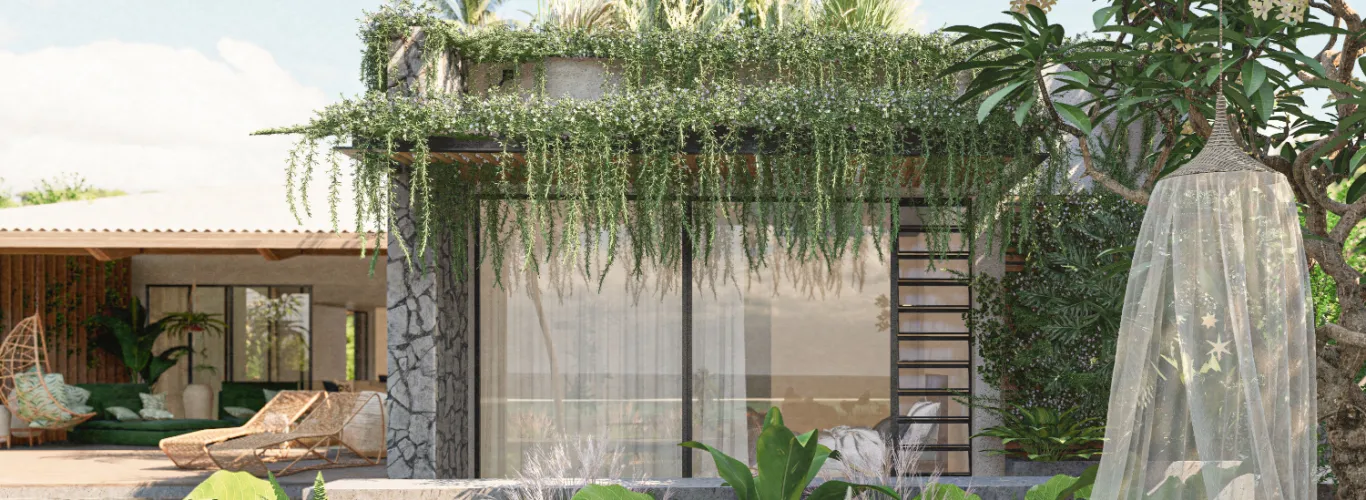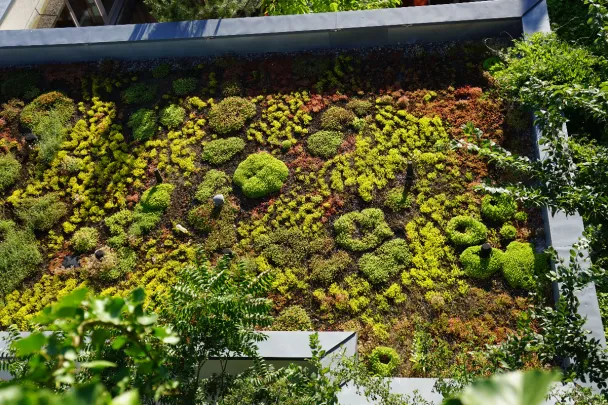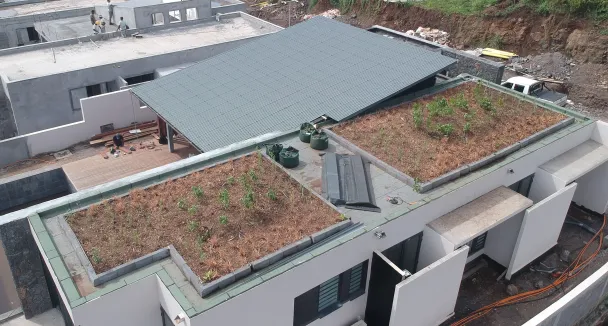A villa with a green roof offers many advantages.
Anbalaba-Village is committed to a genuine environmental approach: every aspect of the villas and flats has been designed to respect the surrounding nature. The green roof of the Pomelo villa, in addition to blending into the landscape, has many advantages.
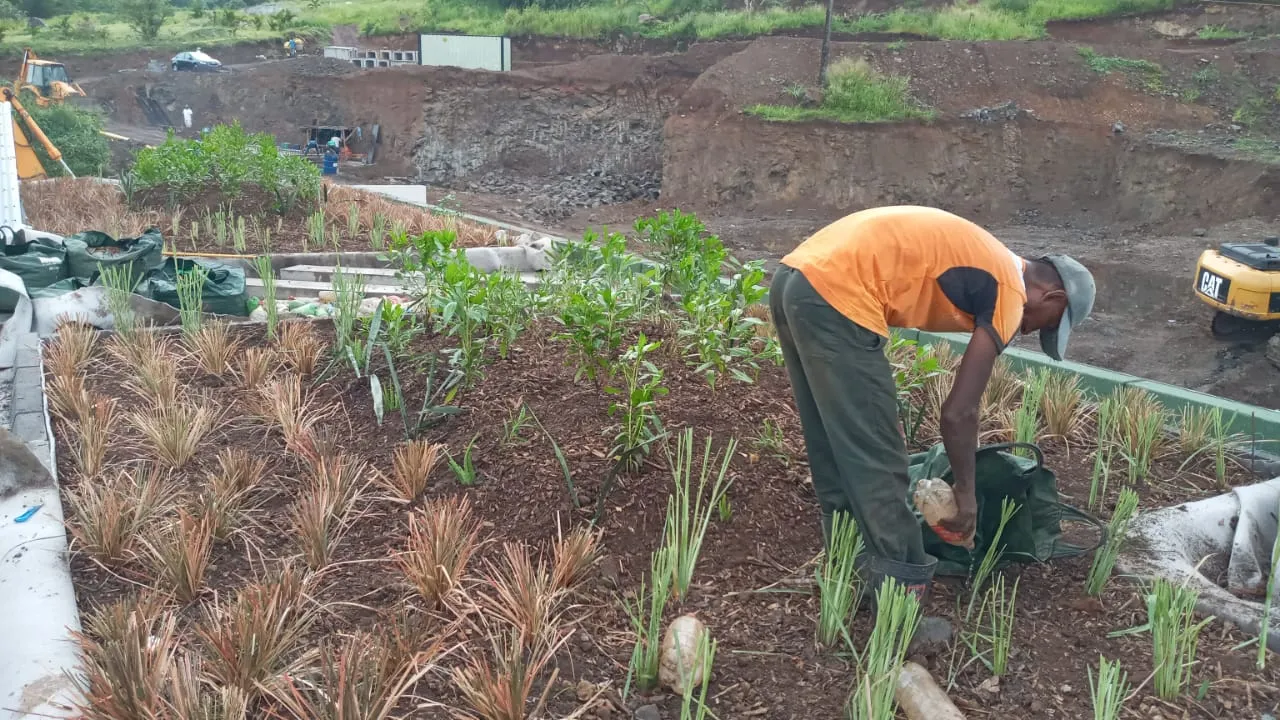
The green roofs of the first Pomelo villas are currently being planted by our teams. All species come directly from the Anbalaba nursery, located in the heart of the village.
The thermal benefits of green roofs
Green roofs are particularly used in hot climates areas. The vegetation on the roof intercepts the sun's rays and thus limits the use of air conditioning.
The energy savings achieved make green roofs a truly environmentally friendly option.
On the other hand, when temperatures are lower, the plants on the roof help to keep the heat inside the villas.
Rainwater retention
- Rooftop vegetation retains about two-thirds of rainwater and limits the risk of flooding.
A longer life span
- These roofs have a longer lifespan than a conventional roof because they are not directly affected by the sun's rays.
Noise reduction
- In addition to thermal insolation, green roofs create sound insulation around the villa.
A glimpse of the green roof of the Anbalaba villas!
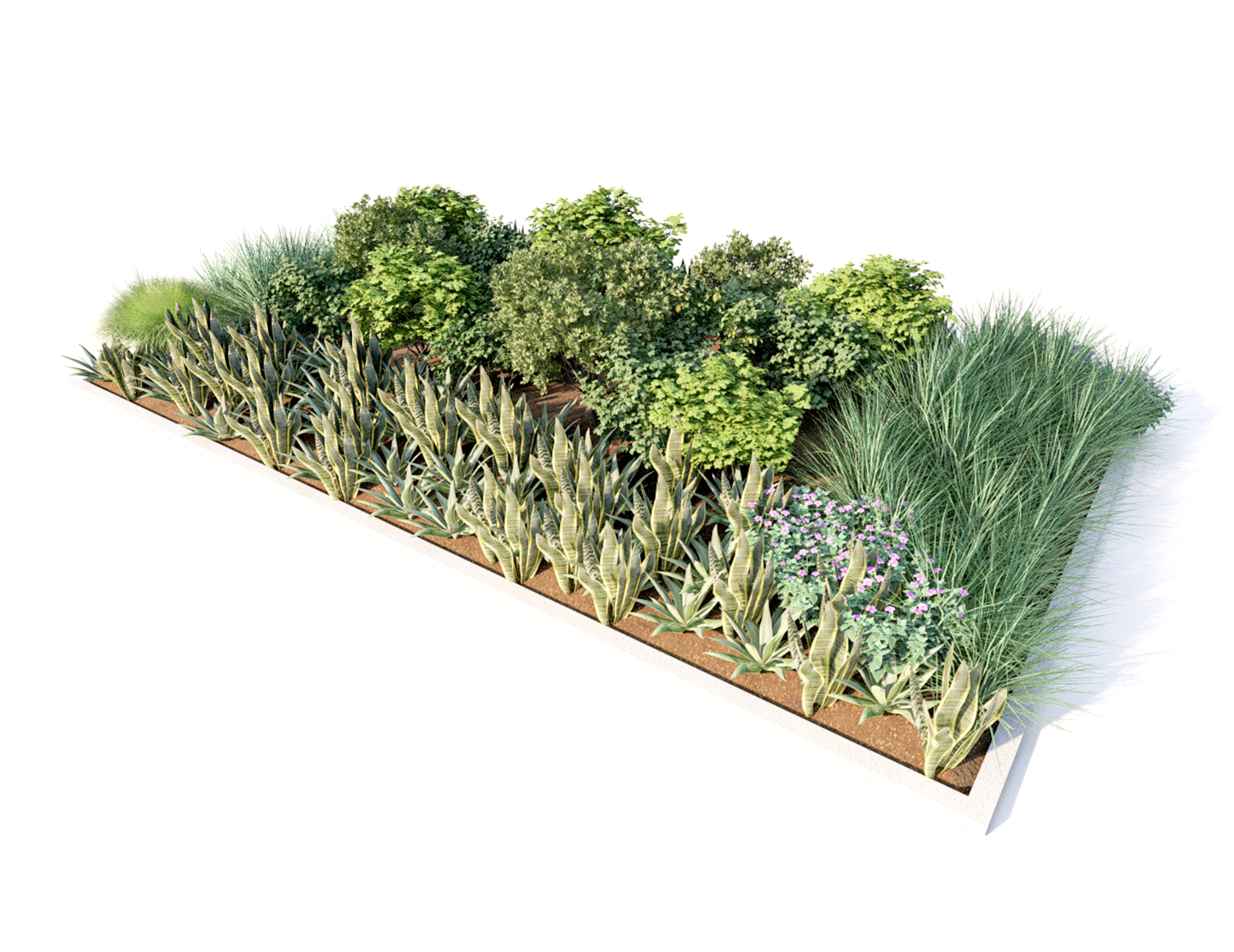
Among the plants that will adorn the roof of the villas:
- Endemic vetiver: a plant that helps fight against erosion, sand and floods.
- Lemongrass: an aromatic plant with multiple benefits.
- Psiadia arguta: an endemic shrub whose secretion is used in the treatment of wounds and ulcers.
- Reinette wood: a small tree with green leaves and a beautiful copper sheen.
- Sanseveria: a plant that is particularly resistant to heat.
- Aloe Vera: a plant widely used for its medicinal properties, particularly in cosmetics.
- Mansoa Alliacea: a colourful climbing liana that will brighten up the green roof.
The incredible ecological benefits of green roofs
Generally, the plants used on green roofs have absorbing qualities. Moreover, through the process of photosynthesis, plants also absorb CO2 continuously.. These roofs thus help to improve local air quality.
The vegetation of the roofs favors the biodiversity of both flora and fauna. They become real refuges for insects, pollinators and birds.
